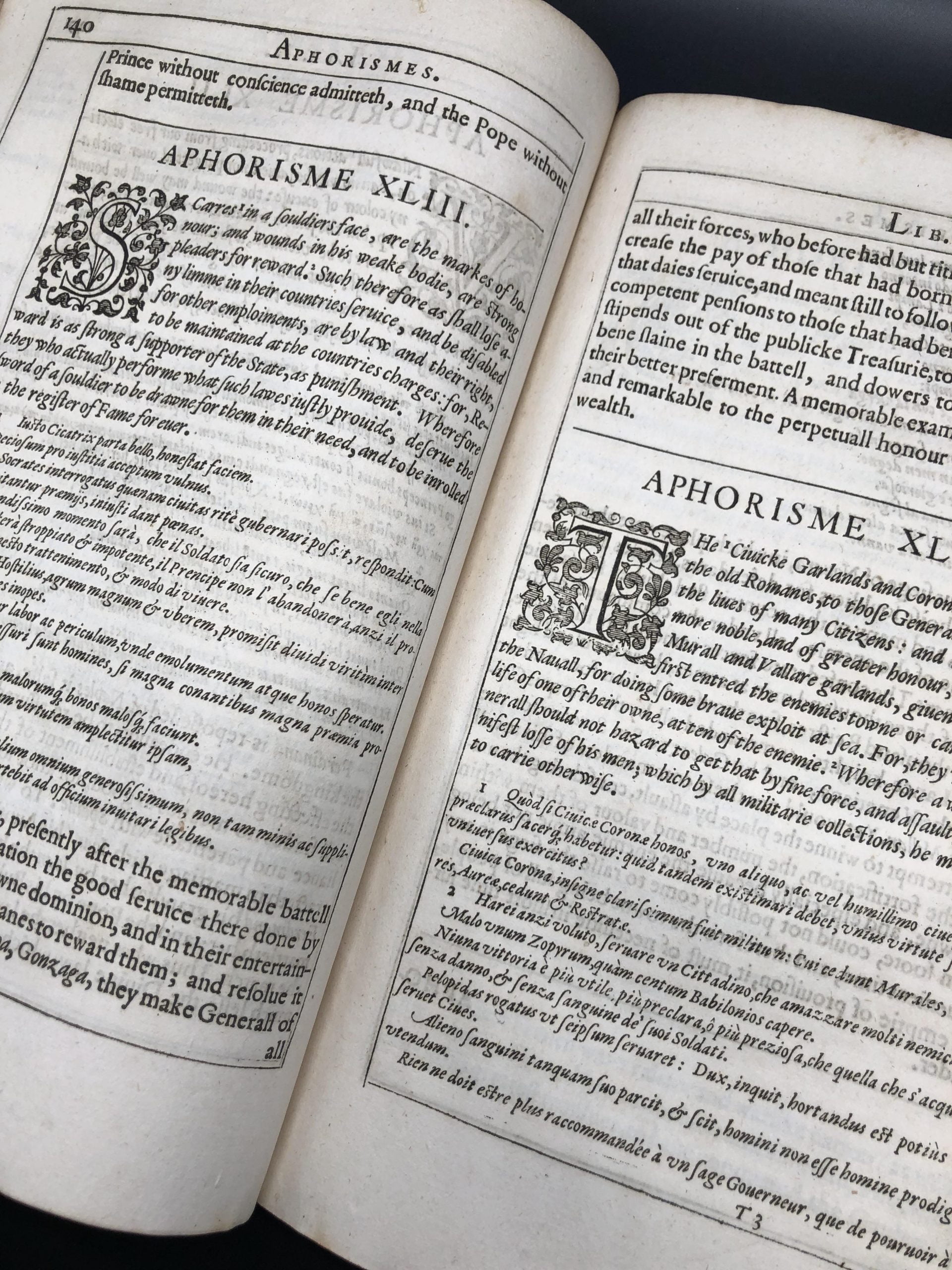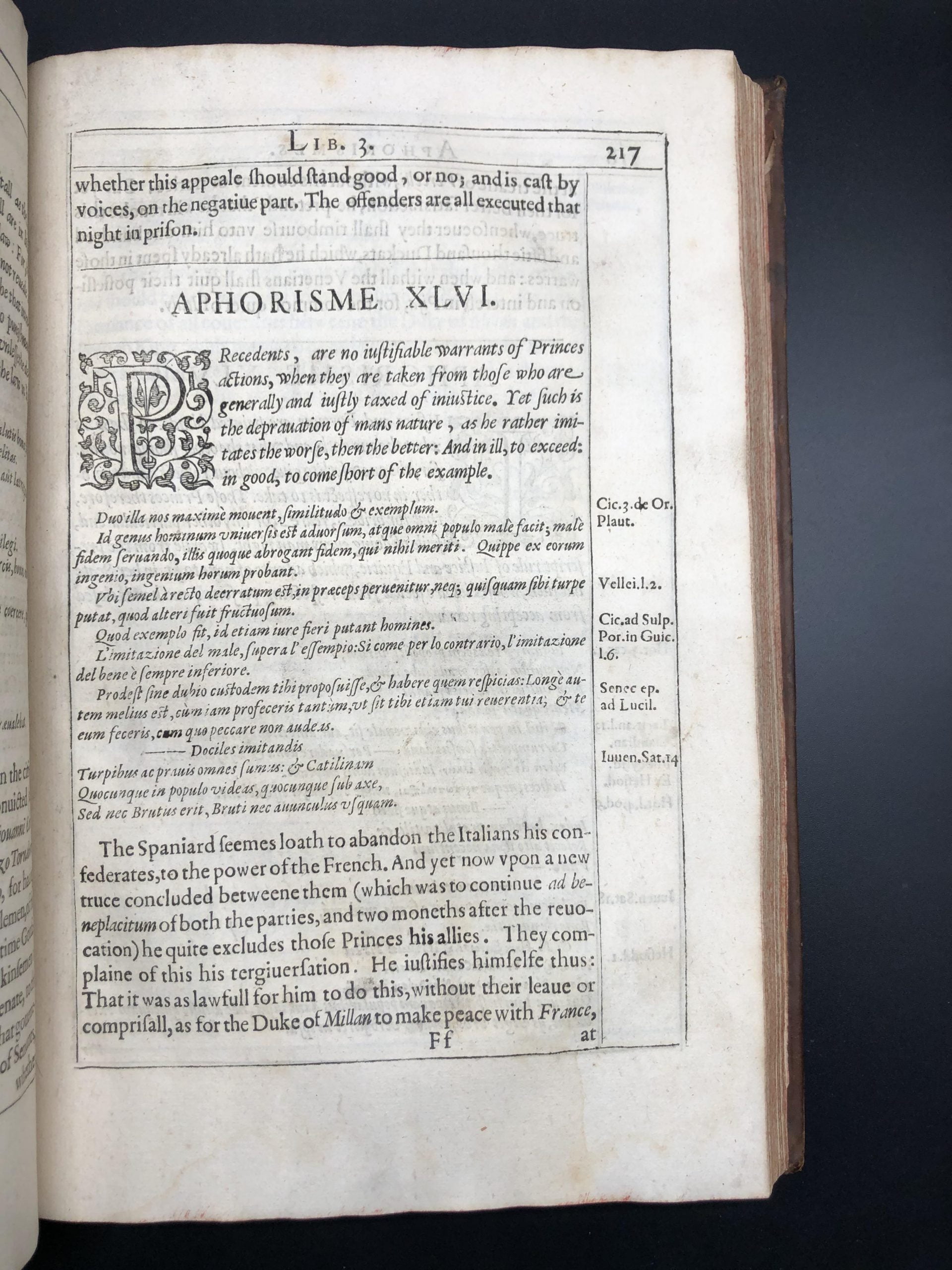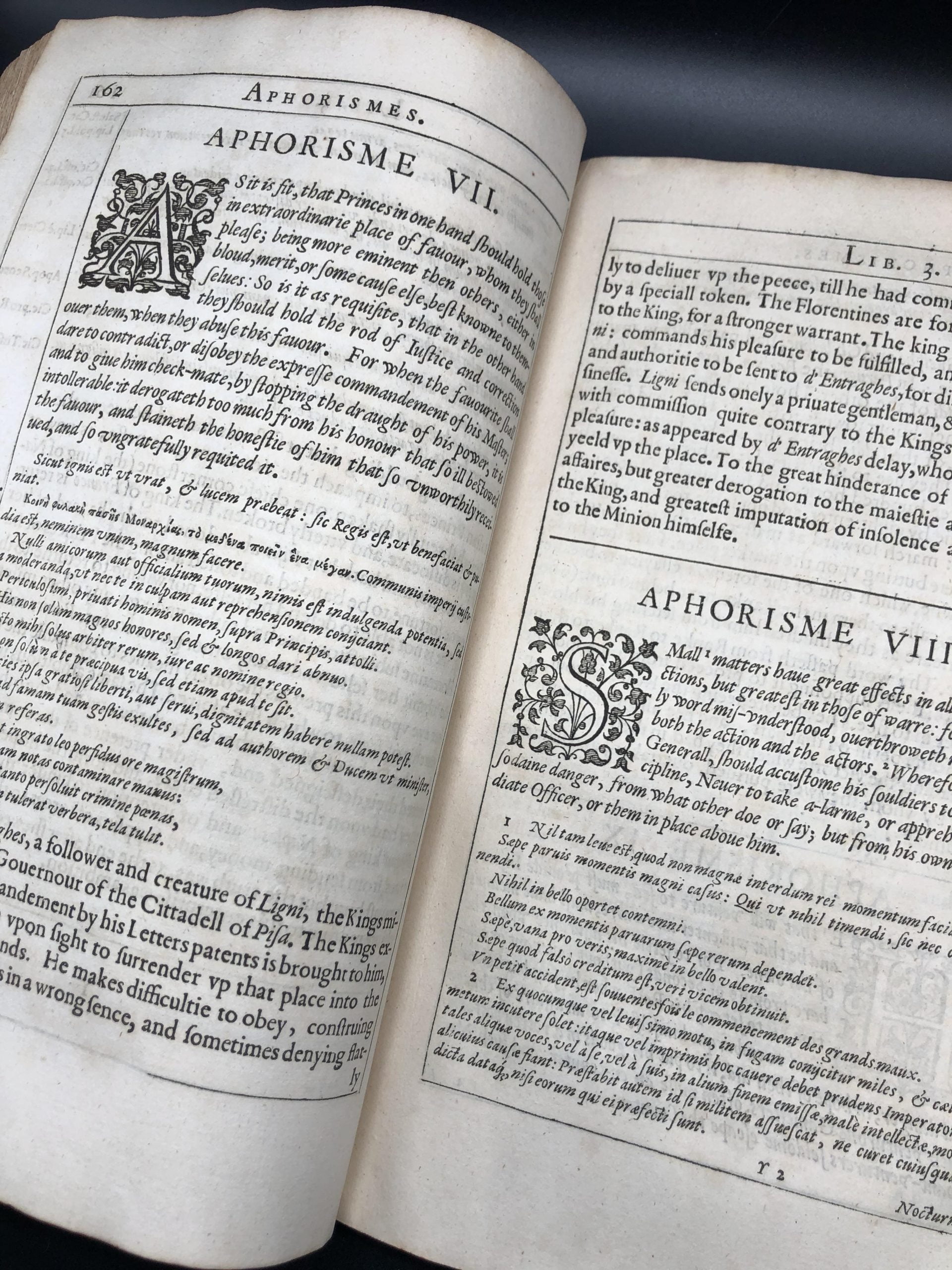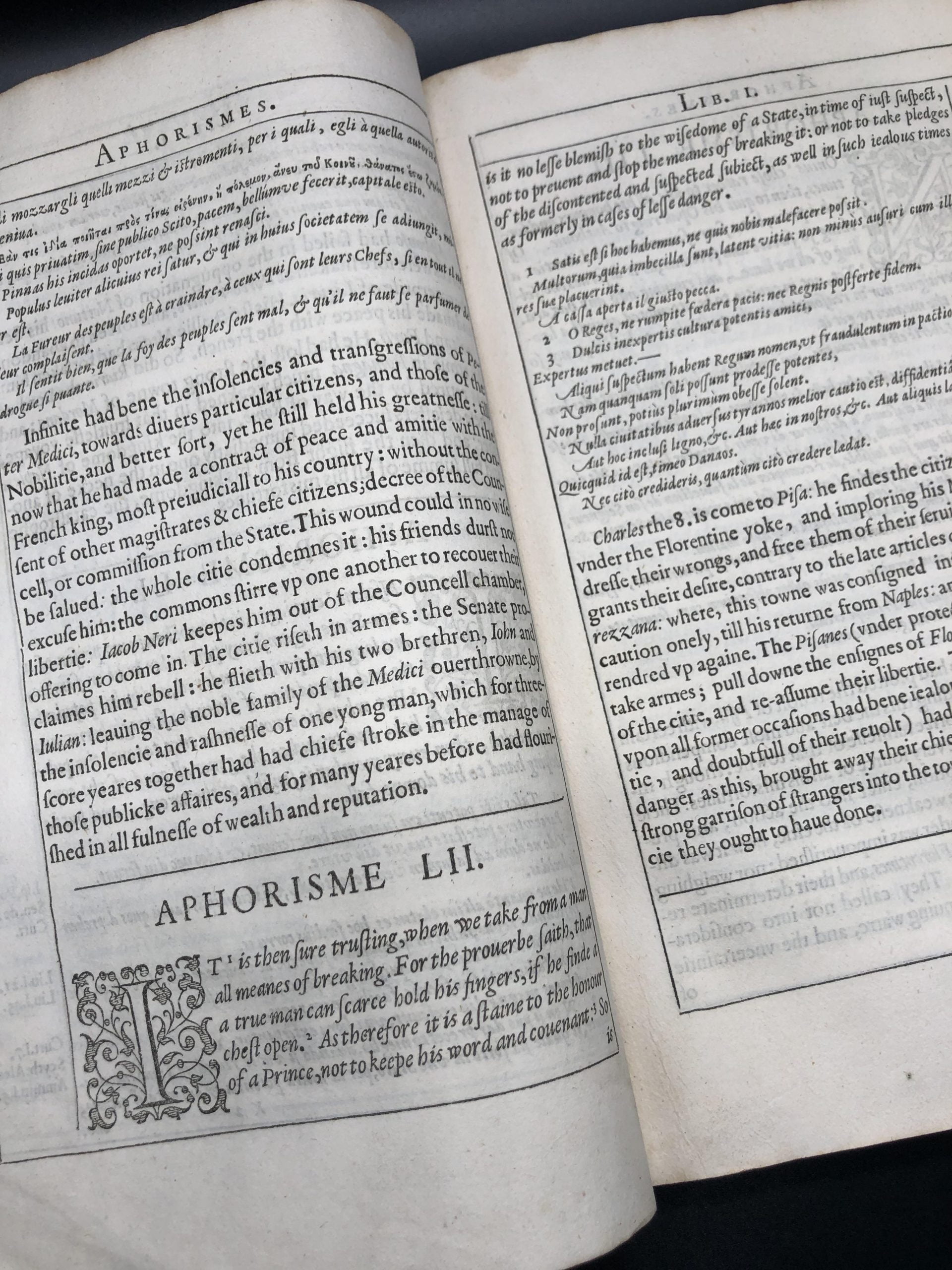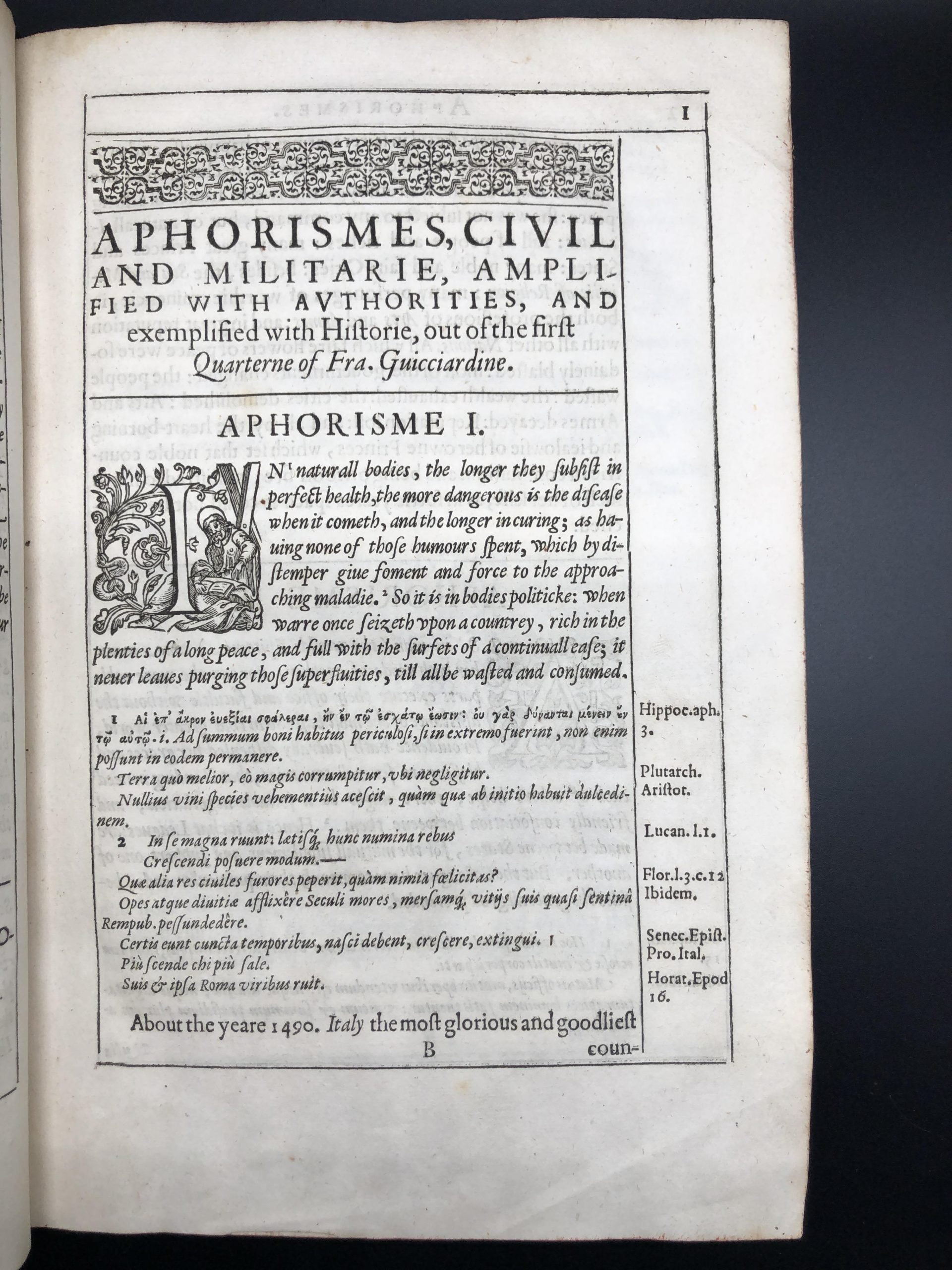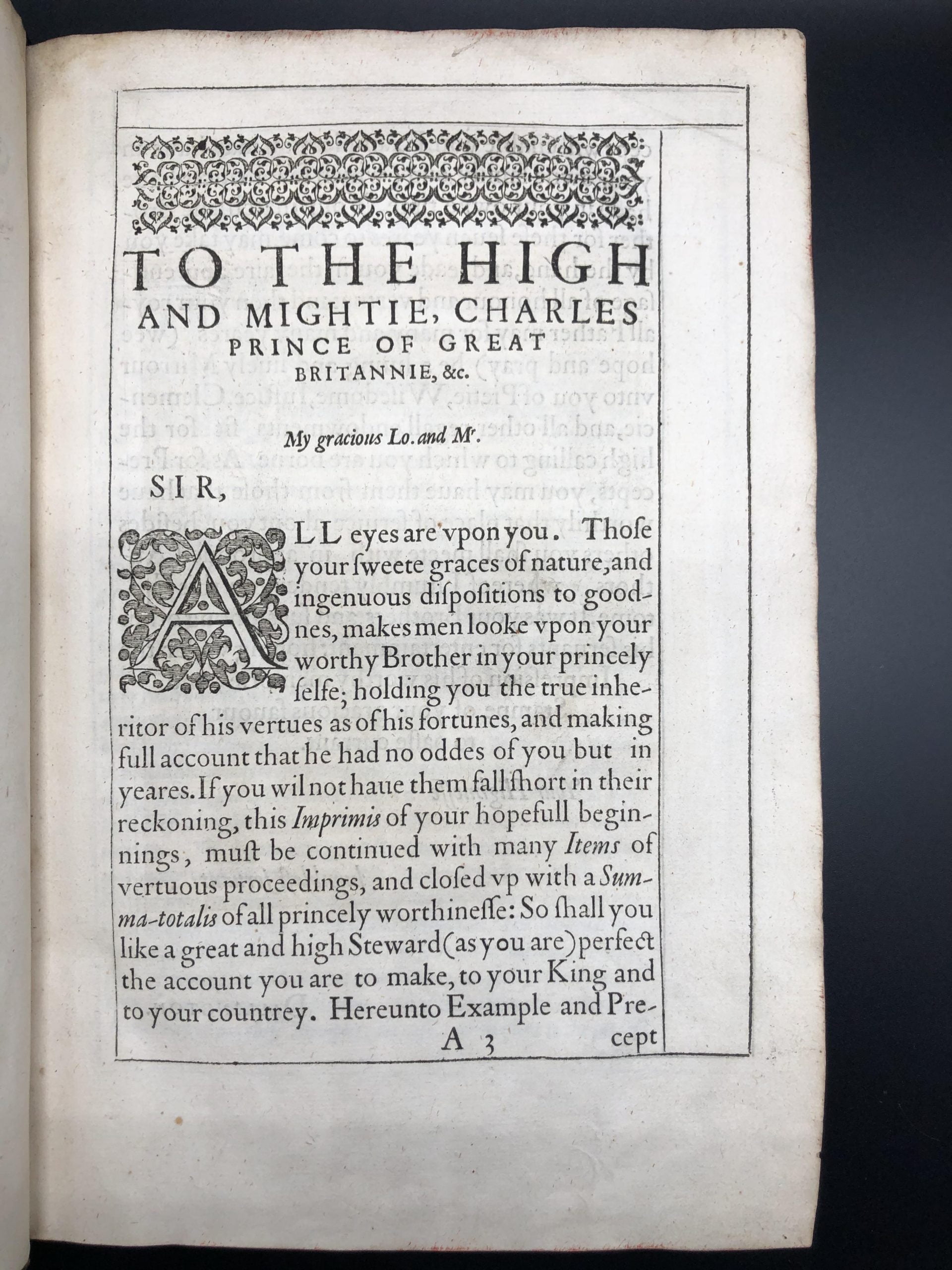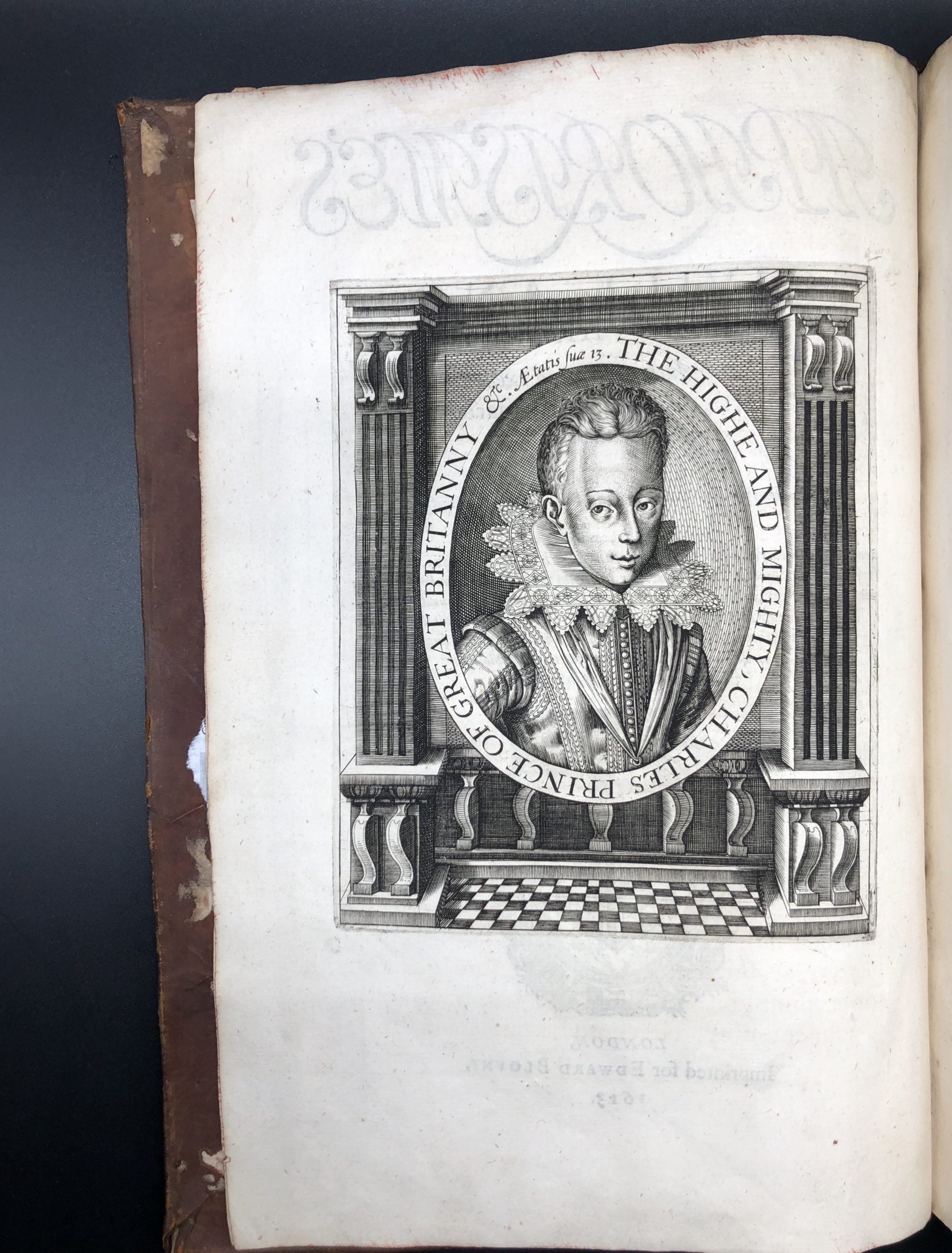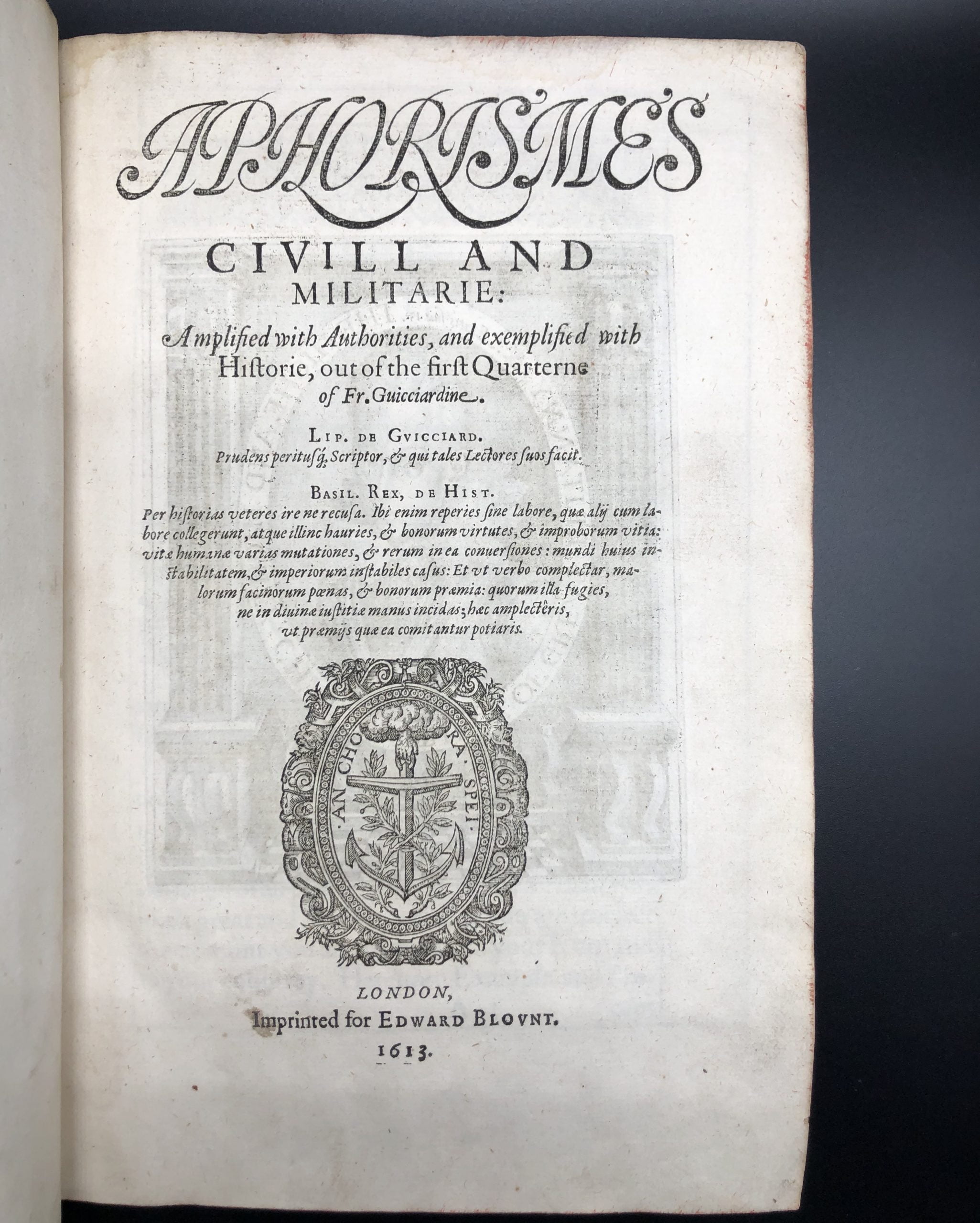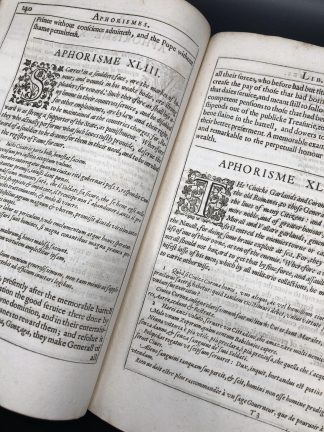DALLINGTON, Sir Robert
Aphorismes civill and militarie: amplified with authorities, and exemplified with historie.
London, Edward Blount, 1613£2,750.00
FIRST EDITION, 2 parts in one volume, folio pp. [viii], 339, [i], 61, [iii]. A-2T , 2V ,2X-3E . First and last blanks present. “First word of title is xylographic. ‘A briefe inference vpon Guicciardines digression, in the fourth part of the first quarterne of his historie’ has separate title page and pagination; register is continuous.’ ESTC. Roman and Italic letter, some Greek. Text in box rule. Woodcut printer’s device on both titles, fine engraved portrait of the dedicatee Prince Charles on verso of first, floriated woodcut initials, typographical ornaments. Very minor light waterstain on lower blank margins of a few leaves. A fine copy, absolutely crisp and clean, with good margins in contemporary calf, covers bordered with a triple blind rule, spine with raised bands, ruled in blind, tan morocco label gilt, edges with gilt pointillé rule, a.e.r., a little scratching to upper cover.
A fine copy of the first edition of this important and influential book of Aphorisms adapted from Guicciardini. The author had been introduced to Prince Henry in 1605, serving him for four years without reward; in 1609 Dallington presented Henry with a manuscript translation “Aphorismes civill and militarie”, selected from the Italian historian Francesco Guicciardini. As a result of this gift Dallington was fee’d as a gentleman-in-ordinary of the prince’s chamber, joining the distinguished group of scholars who attended James I’s high-minded heir. After the prince’s death in 1612 Dallington reworked his Aphorismes for publication, published here with a new dedication to Prince Charles. “Improbably the ruse worked a second time, and Dallington became one of the few members of Prince Henry’s household to be retained by the new heir. It has even been suggested that Charles may have derived his unfortunate persuasion that duplicity was a princely virtue from reading Dallington’s Guicciardini.” (see ODNB).
“In 1613 Robert Dallington dedicates his Aphorismes Civill and Militarie to Prince Charles. The overt purpose of his work is to offer this future ruler lessons in political prudence. Dallington condenses educational episodes from the first five books of Guicciardini’s Storia d’Italia, introducing each with a moral of his own and sententiae from various sources. On the surface, the Aphorismes is a typical approach to methodising the art of prudence. Dallington is only one of many early modern authors to compile a collection of political wisdom based on the works of the famously prudent Guicciardini, but the Aphorismes stands out from similar works because of how the author approaches the challenge of cultivating the reader’s prudence. Like other collectors, Dallington does methodize, order, and condense. However, Dallington’s method does not simply arrange static precepts for easy consumption. Rather, Dallington employs a method of prudent indirection to immerse precepts in dynamic and complicating contexts that enable readers to develop skills of discretion and flexibility. Dallington not only adopts an essentially Ramist method to Baconian and Guicciardinian ideals of induction, but he also takes an Odyssean route to prudence, incorporating romance conventions of voyage and digression that transform his manual of prudence into something more adventurous and more effective than the typical aphorism collection.” Patricia Davis Patrick ‘Judgement in Early Modern England.’
ESTC S109203; STC 6197. Pforzheimer. Grolier.In stock


